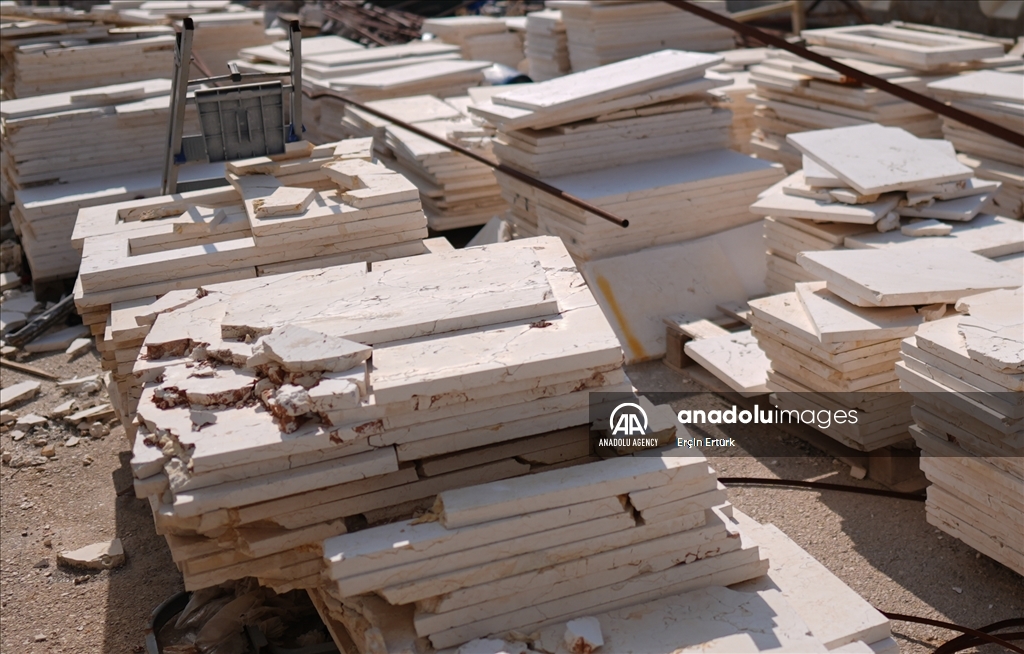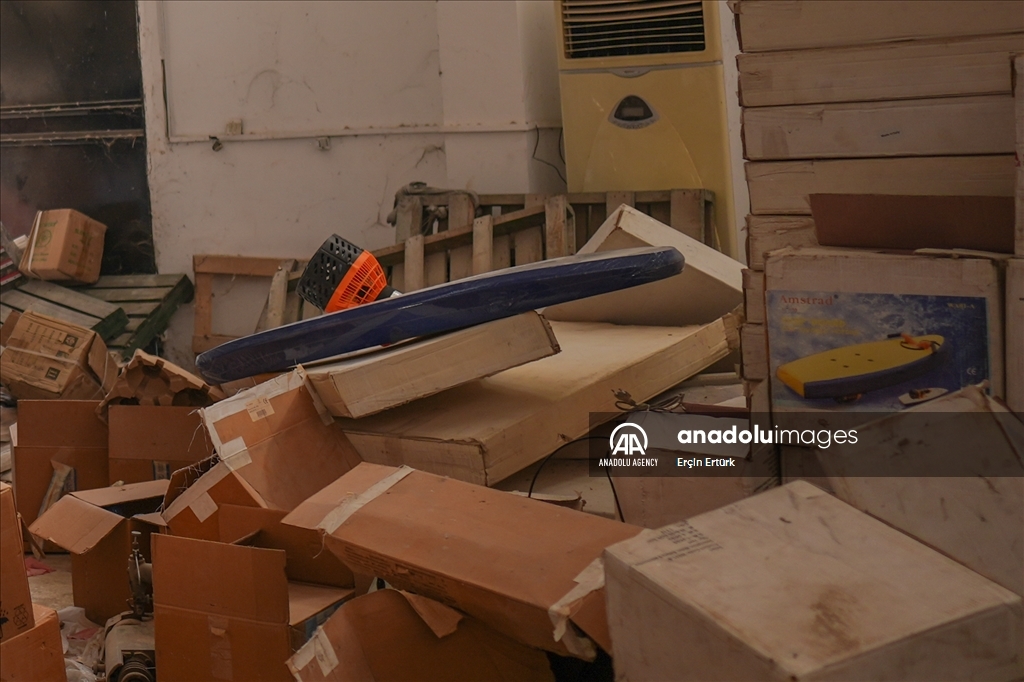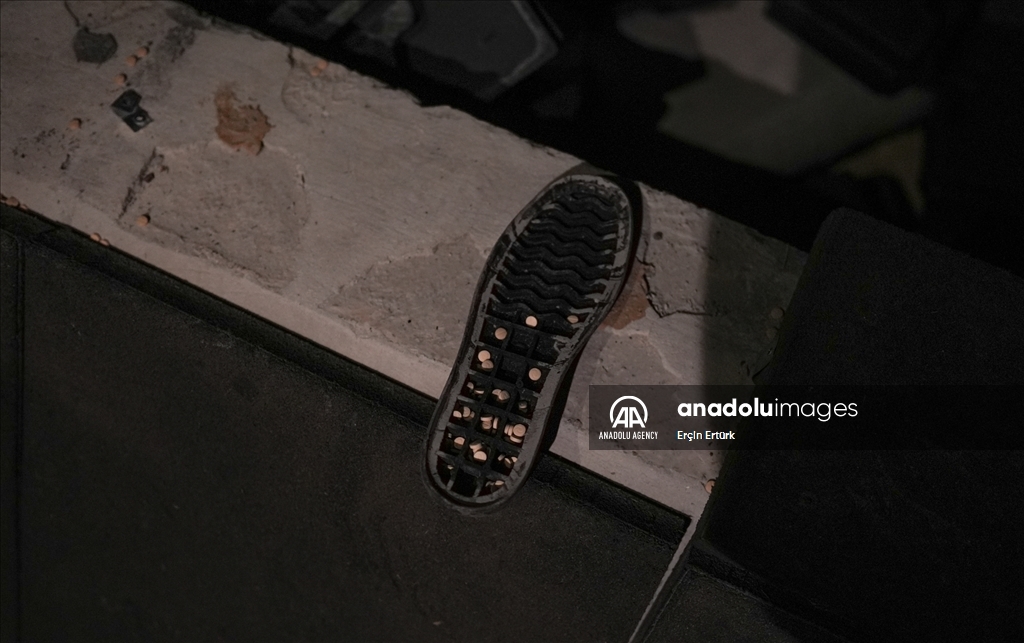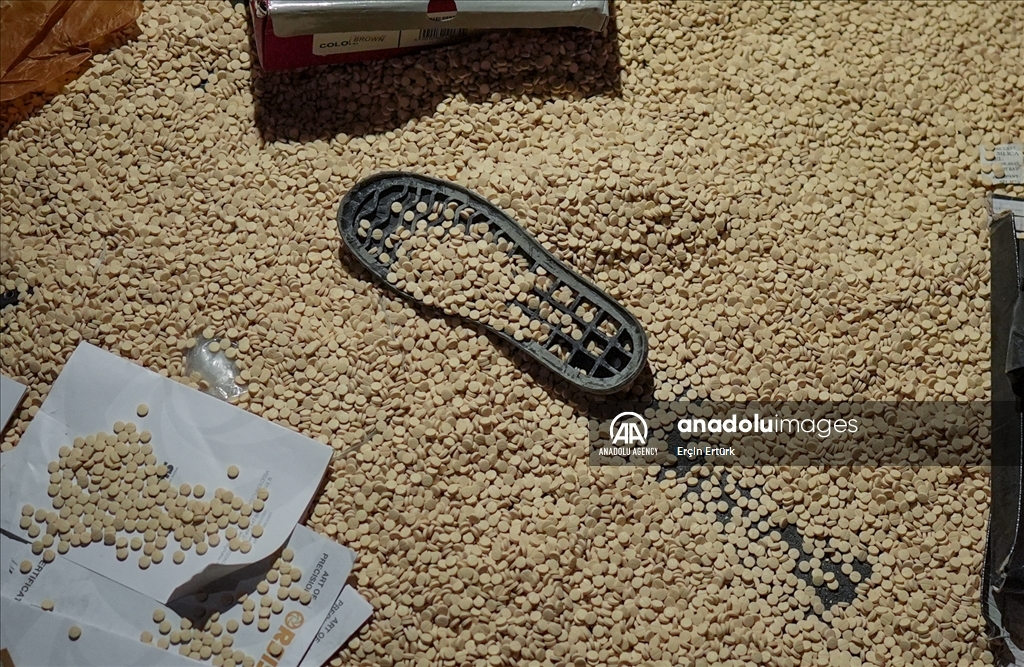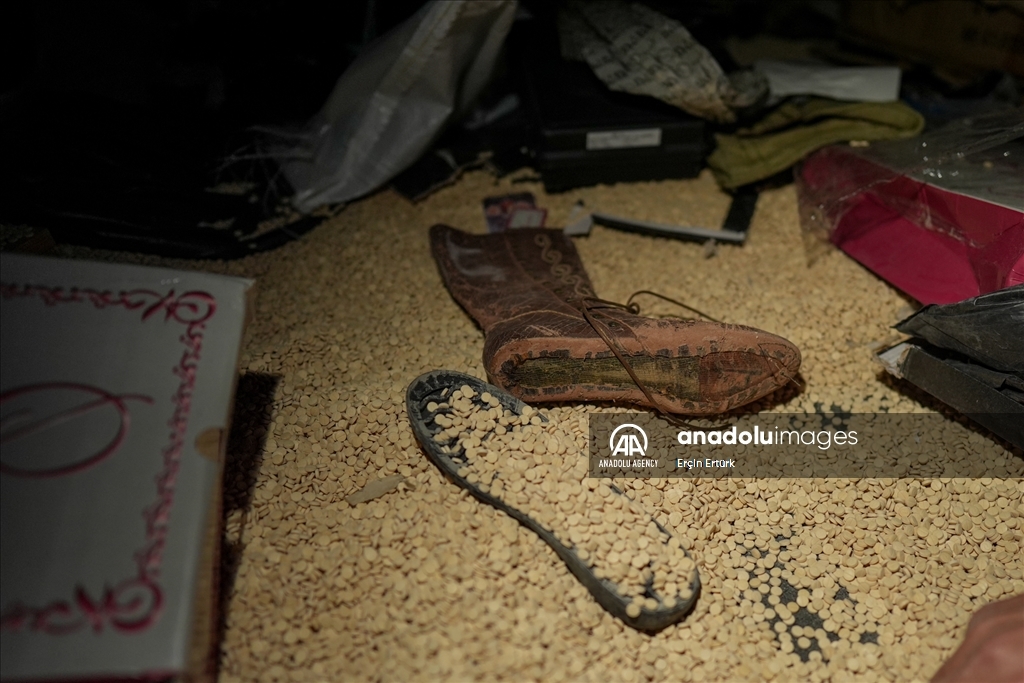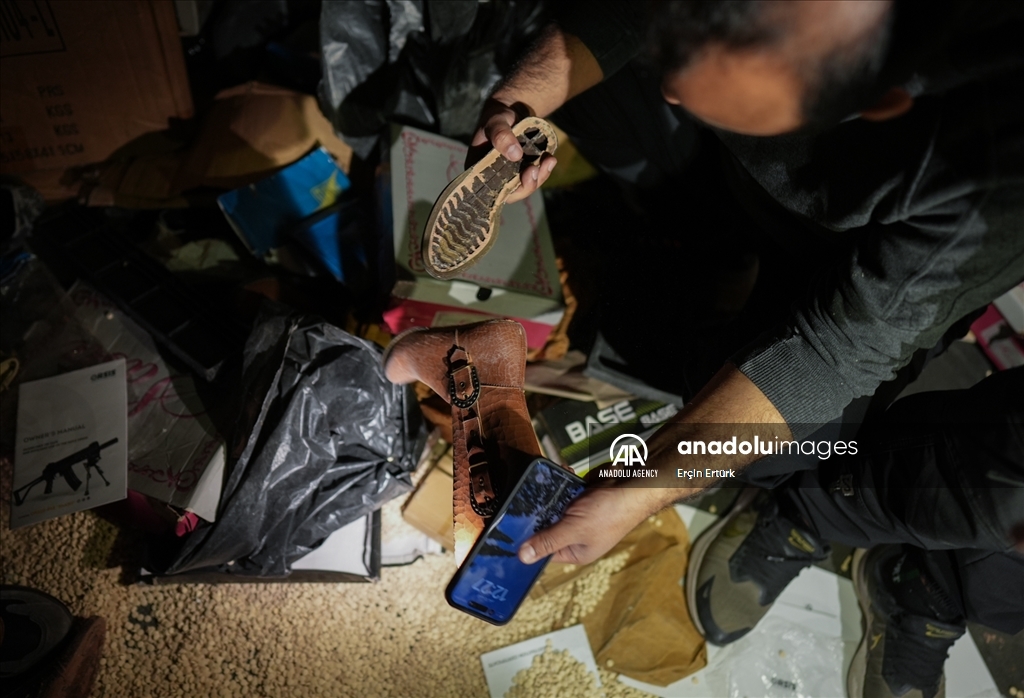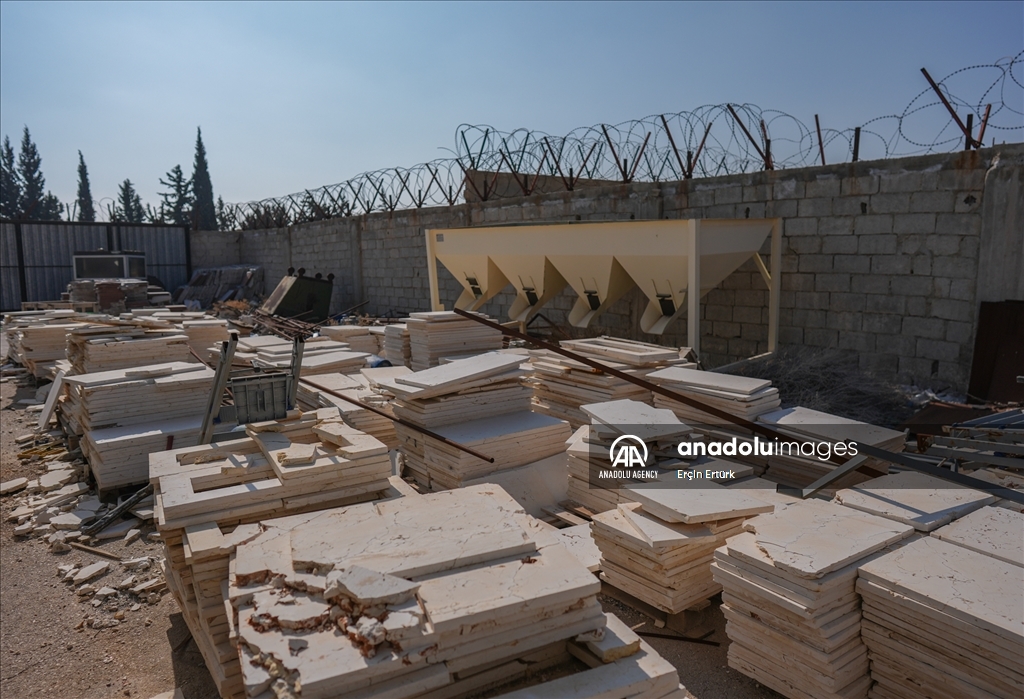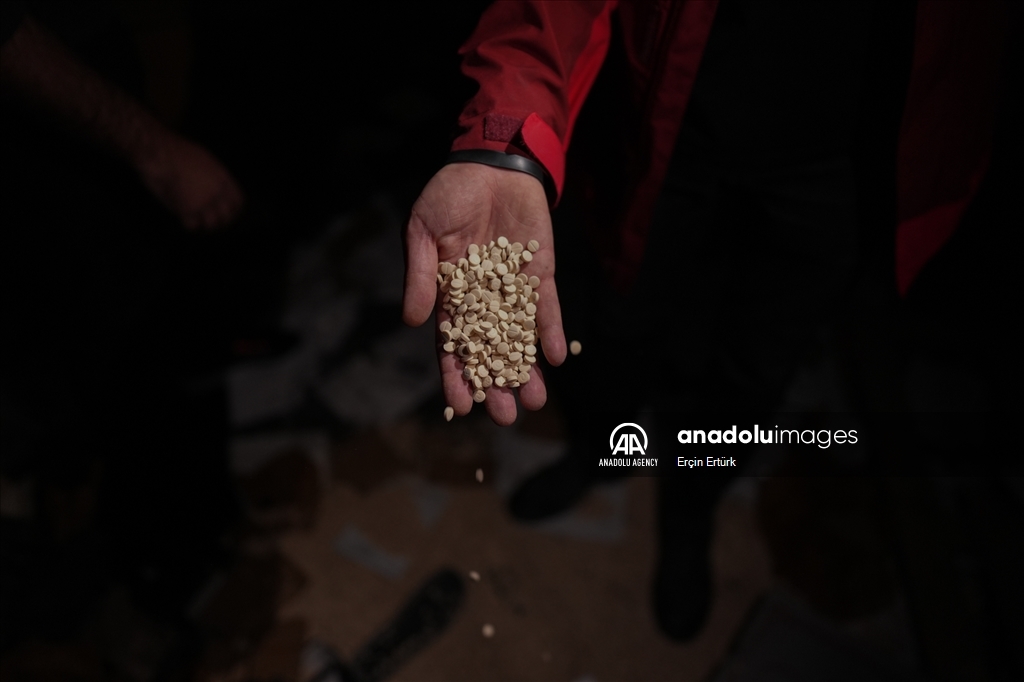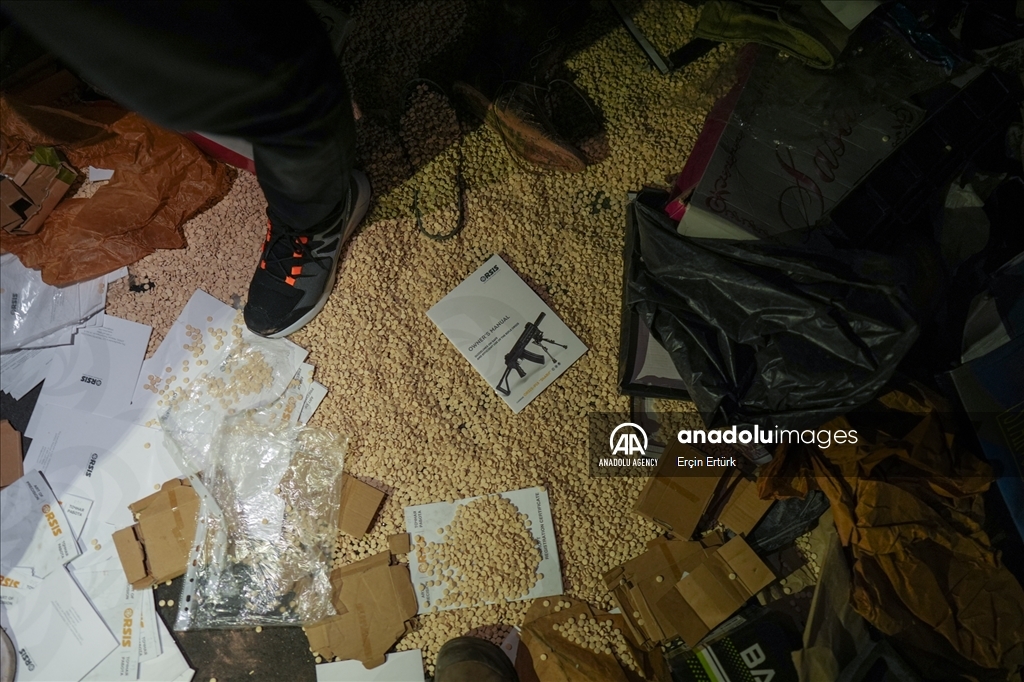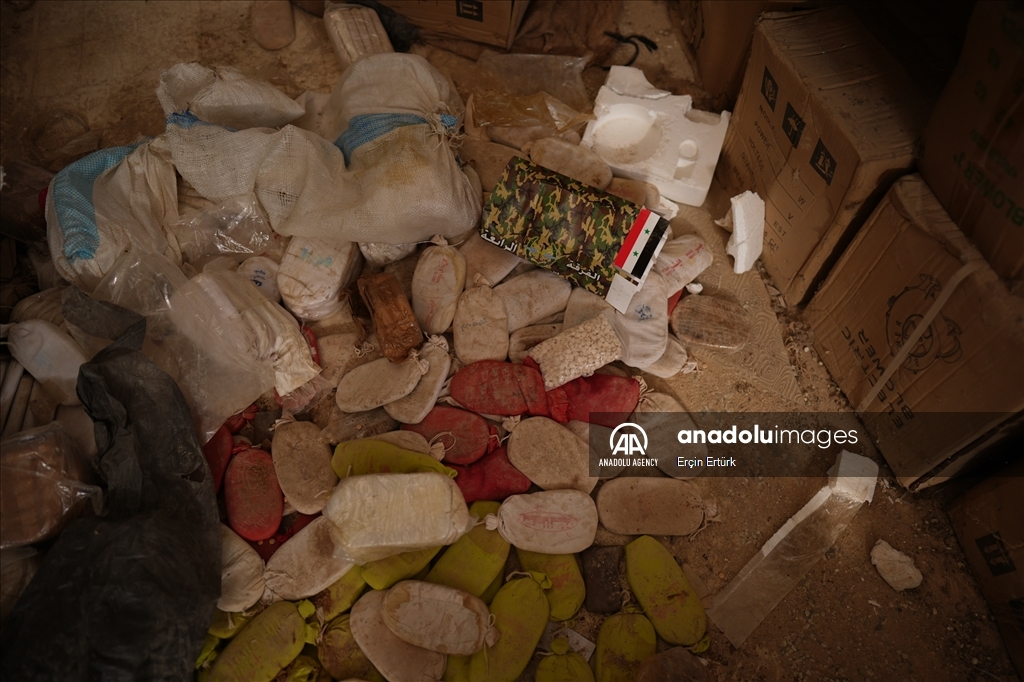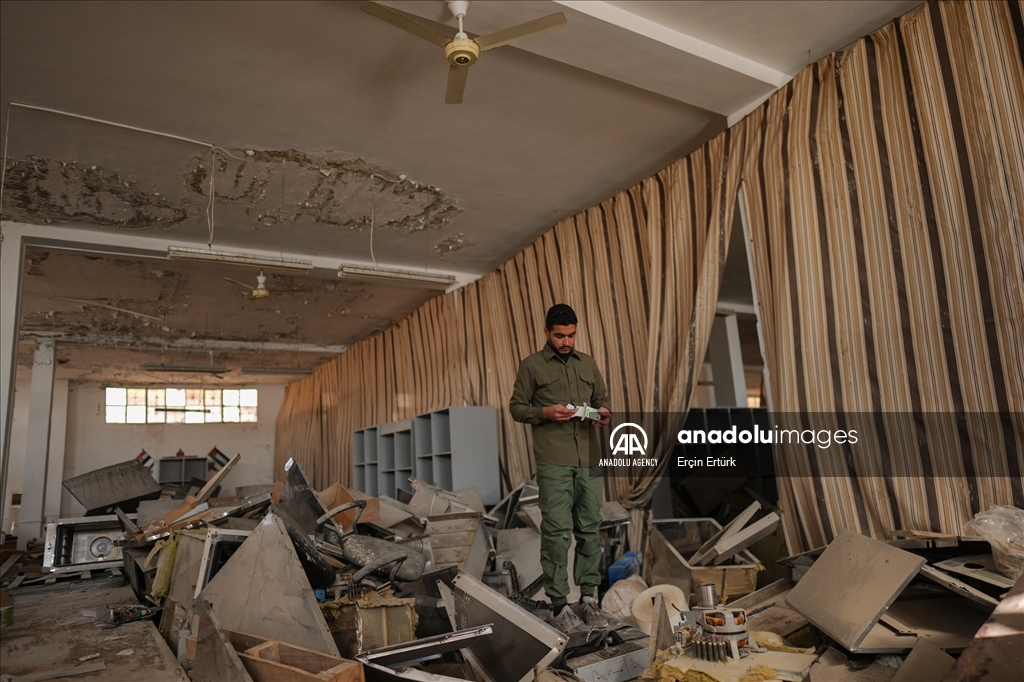Anadolu documents largest drug depot of ousted Assad regime in Syria
Along Syria-Lebanon highway, 4th Division of ousted regime's army served as drug depot under command of Mahir al-Assad, brother of Bashar al-Assad
 An aerial view of the largest drug depot of the ousted al-Assad regime is uncovered, revealing containers full of substances and the items used to conceal them, in Damascus, Syria on January 12, 2024.
An aerial view of the largest drug depot of the ousted al-Assad regime is uncovered, revealing containers full of substances and the items used to conceal them, in Damascus, Syria on January 12, 2024.
DAMASCUS
Anadolu reached and documented what is considered the largest drug depot of the overthrown Bashar al-Assad regime in Syria, capturing images of containers filled with drugs and the places where they were hidden.
Along the Syria-Lebanon highway, there is a headquarters belonging to the 4th Division of the regime's army, which was commanded by Bashar al-Assad's brother, Mahir al-Assad.
After the downfall of the Assad regime on Dec. 8, it was revealed that this location, rather than being a military base, had been used as a storage facility for drugs being prepared for transport to the region.
According to estimates by the UK government, Assad was responsible for 80% of the global production of captagon, an addictive drug.
The global annual trade of captagon is valued at $10 billion, and it is estimated that the overthrown Assad family earned nearly $2.4 billion annually from this trade.
The use of a military base as a drug production and storage facility serves as one of the clearest examples of how the regime had transformed into a "narco-state," managing drug trafficking through state apparatus.
At the entrance to the depot, which had once served as a headquarters, there are pictures of Bashar and Mahir al-Assad.
The walls of the base are inscribed with slogans like "Our blood, our lives are devoted to you, Bashar," and "We are all Assad."
Opioid-based drugs in pistachio boxes, captagon pills in shoe soles
Around the drug storage used as a military base, there were many civilian vehicles with civilian license plates.
Syrians report that these vehicles belong to kidnapped civilians and were used for drug trafficking.
In one of the containers, hundreds of boxes containing opioid-based medications with high addiction level, which require a prescription, are stored inside pistachio boxes.
In another hangar within the military base, numerous shoe boxes were found.
It is reported that bags full of captagon were placed in the soles of the shoes for transport.
Similarly, mattresses were seen stacked in the area, also used for transporting drugs.
Different types of drugs hidden in various products
Moving further into the military base revealed various products used to smuggle drugs.
Marble blocks with hollowed centers, ceramic tiles, portable ladders, and car doors were also used to hide drugs.
In one of the containers here, raw materials used in drug production were found.
A Shiite militia emblem from Iraq still stands in front of the container.
In a third warehouse on the military base, drugs such as cannabis and captagon were seen packed on shelves.
The smell of the drugs becomes intensely noticeable as one enters the warehouse.
Items like foam surfboards, doors with hollowed-out sections, wooden plywood blocks, and industrial ventilation devices, which would not normally be found on a military base, were used to conceal drugs during transport.
Likewise, different chemical raw materials used in drug production were found in the base.
4th Division has become drug division
“This is one of the depots of the 4th Division. The pills and cannabis packaged here were exported to neighboring countries,” Ismail Zaitoun, a guard working for the Defense Ministry of Syria's interim government, told Anadolu.
Zaitoun noted that the depot contained raw materials, captagon, and cannabis.
"In the 4th Division headquarters, in addition to the depots, there are also manufacturing facilities. This depot is a packaging center. Drugs were trafficked to neighboring countries using many products such as wood, shoes, marble stone, and electrical goods," he said.
“When we arrived, we knew the area was a military point, but we also saw it was a drug hub. Multiple drugs were being produced in the 4th Division under the command of Mahir al-Assad, and sent to neighboring countries through many channels. The 4th Division has become the drug division,” he added.
Zaitoun pointed to tissue boxes marked with "4th Division" and the old two-star Syrian flag, which were placed at the front of large transport trucks, allowing them to pass freely through checkpoints within Syria and reach the border areas.
Zaitoun also revealed that the regime tried to cover the costs of bringing foreign armed groups to Syria by producing drugs.
Regime earned billions of dollars from drug trafficking
The fallen regime earned billions of dollars from drug trafficking, one of its major sources of income.
The drug production and trafficking network, led by Mahir al-Assad, Bashar al-Assad’s brother, was responsible for transporting drugs produced in Syria, primarily via Lebanon, to regional countries and worldwide.
According to a report by the UN Office on Drugs and Crime (UNODC), the main departure points for drug shipments were Syria and Lebanon.
These shipments were either transported directly to the Gulf Arab countries via land or sea routes, or indirectly through other regions.
It has also been speculated in international media that the recent steps taken by Arab countries to normalize relations with the Assad regime were aimed at preventing the drug trade from affecting their countries, and that they have been in talks with Bashar al-Assad to address this issue.
There are concerns that high-ranking figures from the fallen regime, who have fled Syria to neighboring countries, may establish a similar drug network.
On Dec. 13, 2024, Anadolu captured footage of a drug packaging workshop located in the basement of a factory in the Duma district of Damascus.
In addition, on Dec. 15, 2024, Anadolu filmed a drug production facility located in a villa belonging to Mahir al-Assad in the town of Dimes, west of Damascus.
*Writing by Esra Tekin in Istanbul
Anadolu Agency website contains only a portion of the news stories offered to subscribers in the AA News Broadcasting System (HAS), and in summarized form. Please contact us for subscription options.
